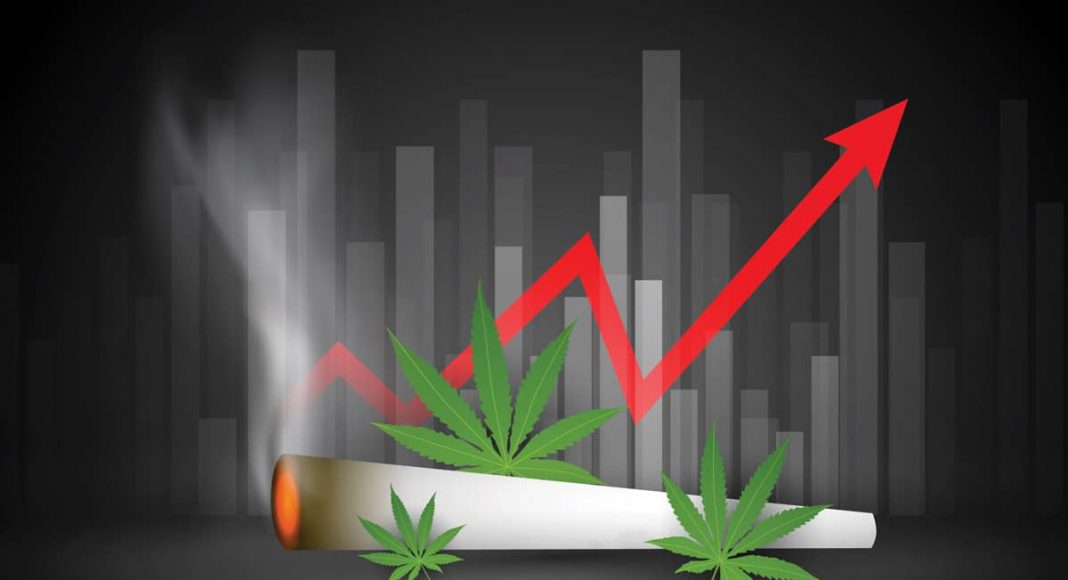There are a number of reasons why companies choose to go public, including: fundraising, publicity, credibility, liquidity and currency.
A number of cannabis companies have gone public over the last several years, with the majority listed on a small exchange in Canada called the Canadian Securities Exchange (“CSE”). Many have done so via reverse takeover—a merger transaction in which a private company acquires a public shell company, merges into it, and then takes it over and changes its name—rather than resorting to an initial public offering, a more common practice in which a private company sells shares to the public and is then listed on a public exchange.
There are a number of reasons why companies choose to go public, including:
- Fundraising: It enables companies to raise large(r) amounts of capital from external investors.
- Publicity: Going public is a watershed moment, raising a company’s profile among investors, customers, competitors, and the general public.
- Credibility: Becoming and being a public company is somewhat of a status symbol. It shows that you’ve “made it” and can handle the rigorous disclosures and transparency required by investors and regulators.
- Liquidity: It allows longtime employees and investors to “take some chips off the table” by monetizing some or all of their holdings.
- Currency: Public stock can more easily be utilized for acquisitions.
These last two aspects, liquidity, and currency were analyzed for the 30 largest CSE-listed companies with U.S. operations (and compared against a group of 30 U.S.-listed micro-cap biotech, brewing, vitamins/supplements, and natural food companies) to assess the benefits of these listings.
RELATED: Cannabis Stocks Started Strong But Ended On Sour Note In Fourth Quarter
As you can see in the chart below, there is a meaningful lack of liquidity for the CSE-listed companies. The comparable stocks have nearly three times the average daily trading volume of the CSE-listed cannabis companies. Also, there is a long “tail” with the CSE-listed stocks. The overwhelming majority have extremely thin volume—some had days where literally zero shares were traded—with just a handful garnering meaningful volume.

When a company is doing a follow-on equity offering, the sizing is important. If a company sells too much stock relative to daily trading volume, it risks flooding the market and driving down the stock price. A sanity check also occurs, looking at how many days of trading it would take for all the newly sold shares to trade. Five to 10 percent is the norm, though higher levels are also possible. Given the thin trading, the ability to do a block trade (selling a large lot of shares to a third party) is also limited.
In an M&A situation, this matters a great deal—the seller becomes largely “stuck” in the company and can’t easily monetize their holdings. In fact, when one looks at several of the recent all-stock acquisitions, it appears as if it will take years for the sellers to convert their shares into cash.

Any company contemplating listing on the CSE or another foreign exchange should consider pursuing status as a “foreign private issuer” and how that may impact liquidity. There are some substantial potential benefits to being a foreign private issuer, including faster market access and less onerous reporting requirements. But maintaining foreign private issuer status can create additional liquidity concerns for some shareholders.
A foreign private issuer must either have the majority of its voting stock held by non-U.S. residents or operate outside the U.S. The only option for U.S.-based cannabis companies is to ensure the majority of voting stock is held by non-U.S. residents. Determination of what the majority of voting stock means can be based on either voting power or a quantitative number of shares.
RELATED: Green Market Report: Marijuana Money Feb. 8
Companies often create a class of super-voting, super-conversion compressed preferred stock that is exchangeable into publicly traded common shares. The preferred stock class—sometimes called Class A stock, but naming conventions vary from company to company—can be set up so that, on a converted basis, the holders of the preferred stock have the same economic and voting rights they would have had if they held common stock instead. But a company must usually impose conversion restrictions to ensure foreign private issuer status is maintained. If too many people convert at the wrong time a company can lose its foreign private issuer status.
Anyone receiving compressed shares should carefully review the terms of such stock so they can be aware of when and how they can convert into freely trading common stock. It may not always be possible to freely convert such preferred stock and the preferred stock may not be as easy to sell as the common stock, creating another potential liquidity issue that should be managed up front.
This article originally appeared on Green Market Report.
David Lechner is a Chief Financial Officer with $25 billion of M&A and capital markets work. He consults with clients on due diligence, acquisitions, integrations, financial reporting, and operational improvements. Originally from Toronto, he now resides in Denver with his family.
Charles Alovisetti is a partner and chair of the corporate practice group at Vicente Sederberg LLC based in Denver. He assists licensed and ancillary cannabis businesses with corporate legal matters, and he has experience working with clients on a broad range of transactions.


